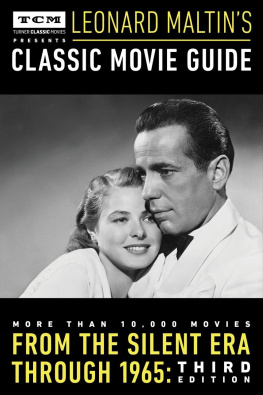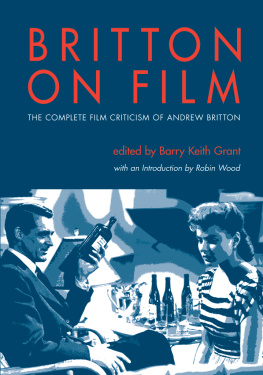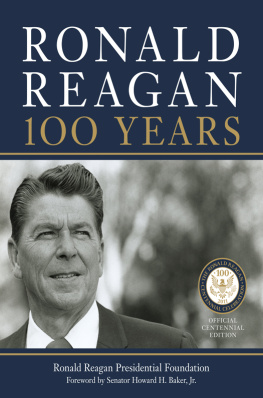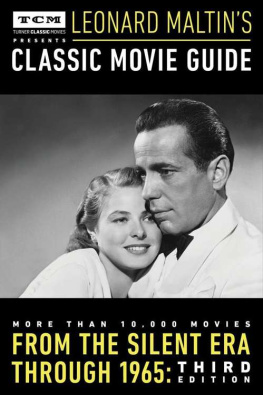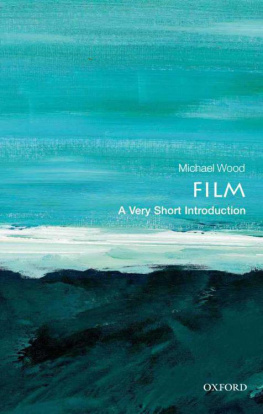Hollywood from Vietnam to Reagan and Beyond

Sandra Bernhard in King of Comedy
HOLLYWOOD FROM VIETNAM TO REAGAN AND BEYOND
Expanded and Revised Edition
Robin Wood

Columbia University Press
New York
Columbia University Press
Publishers Since 1893
New York Chichester, West Sussex
cup.columbia.edu
Copyright 1986, 2003 Columbia University Press
All rights reserved
E-ISBN 978-0-231-50757-8
Library of Congress Cataloging-in-Publication Data
Wood, Robin, 1931
Hollywood from Vietnam to Reaganand beyond / Robin Wood. Expanded and rev. ed.
p. cm.
Rev. ed. of: Hollywood from Vietnam to Reagan, 1986.
Includes bibliographical references and index.
ISBN 0231129661 (alk. paper)
ISBN 023112967X (paper : alk. paper)
1. Motion picturesUnited StatesHistory.
2. Motion picturesPolitical aspects.
I. Wood, Robin, 1931 Hollywood from Vietnam to Reagan.
II. Title.
PN1993.5.U6W64 2003
791.430973dc21 2003043514
Designed by Audrey Smith
A Columbia University Press E-book.
CUP would be pleased to hear about your reading experience with this e-book at .
For Richard
WITH MY LOVE
CONTENTS
Some of the material in this book has appeared in various publications, though in most cases the essays have been revised and in some cases considerably extended. The essays on Altman, Raging Bull, and Heavens Gate, and the section of the Brian De Palma essay on Sisters appeared in Movie, as did The Incoherent Text. The chapter on the 70s horror film has been assembled from a number of articles published in Film Comment. The third section of (Testing the Limits) are taken from a long essay entitled The Use and Obsolescence of Count Dracula published in the Canadian literary journal Mosaic. All these are reprinted with the editors permission. Brief sketches for certain sections appeared in Canadian Forum, for which I write a regular film column, and sketches for the section on Making Love and Victor, Victoria, co-written with Richard Lippe, appeared in Body Politic.
Two writers who are also my close friendsAndrew Britton and Varda Burstynhave had a major influence on this book and indeed on the whole direction of my thought over the past few years. They are given specific acknowledgment in the text, but their influence is far more pervasive than such local recognition suggests.
Two of my ex-students, now my colleagues, who wrote M.A. theses under my supervision, have certainly taught me at least as much as I taught them. Florence Jacobowitz and Lori Spring will doubtless detect the traces of our collaboration in these pages, although I am not conscious of specific borrowing.
I cannot claim direct influence (our paths have been too divergent), but I would like to say hello here to two film critics and theorists whose work I have come greatly to admire: Stephen Heath and Noel Burch. I have learned a lot from their writings, and have found in them a most important stimulus to the more precise definition of my own approach. And although I lack their subtlety and their daunting grasp of complex theoretical issues, we share at least a radical position.
I want to thank Arthur Penn for his kindness in reading the essay on The Chase and for correcting certain misapprehensions concerning his involvement in that filmand also for his generosity and encouragement over many years.
I come now to a very problematic and cloudy area. Virtually everything I write originates as lectures for my classes; innumerable minor modifications and clarifications have resulted from classroom discussions or from my reading of students work. The kind of debt involved is impossible to detail. If any of my students read this, however, I would like to say to them that they probably never realized the importance to me of their encouragement and enthusiasm. Their attitudes, their openness, their readiness to explore and discover, andin the case of those who have allowed me glimpses into their personal livestheir recognition of the need to rethink human relationships have frequently rekindled my faith in a culture whose dominant movement tends to extinguish it.
Finally, I want to acknowledge the contribution to this book of its dedicatee, Richard Lippe, my lover since 1977. Richard has read every sentence of the text and has made many suggestions that I have incorporated. Without his support, most of it would never have been written in the first place.
I think lots of people know perfectly well theyre being cheated and betrayed, but most people are too scared or too comfortable to say anything. It doesnt help to protest or complain, either, because the people in power dont pay any attention.
Rebecka Lind in The Terrorists (by Maj Sjwall and Per Wahl, p. 269)
Recentlyno, for as long as I can rememberlarge and powerful nations within the capitalist bloc have been ruled by people who according to accepted legal norms are simply criminals, who from a lust for power and financial gain have led their peoples into an abyss of egoism, self-indulgence and a view of life based entirely on materialism and ruthlessness toward their fellow human beings. Only in very few cases are such politicians punished, but the punishments are token and the guilty persons successors are guided by the same motives.
Rebeckas defending counsel (p. 286)
My turn to start? Then I say XX as in Marx. (p. 347)
Our Culture, Our Cinema
FOR A REPOLITICIZED CRITICISM
For Nicholas Gee-Ming Chin Wood
THEORISTS, SCHOLARS, CRITICS
I am a critic. As such, I see my work as in many respects set apart from that of theorists and scholars (though it is of course frequently dependent upon them). The theorist and the scholar are unburdened of any necessity to engage intimately and on a personal basis with any specific work; they can hide behind their screens of theory and scholarship, they are not compelled to expose the personal nature of their work because they deal in facts, abstract ideas, and data. Any critic who is honest, however, is committed to self-exposure, a kind of public striptease: s/he must make clear that any authentic response to a work of art or entertainment is grounded not only in the work itself but in the critics psychological makeup, personal history, values, prejudices, obsessions. Criticism arises out of an intense and intimate personal relationship between work and critic. If it is the critics duty to strive for objectivity (in the negative sense of avoiding distortions), s/he knows that it is an objectivity that can never be fully achieved, because even when one is convinced that one sees the work as it is, the relationship to it has still to be established. I have not the right to say, for example, David Lynch makes bad movies: many people for whom I have great respect admire them, and they can certainly be defended on grounds of imagination, accomplishment, originality, strong personal commitment. I do, however, have the right to say, I find Lynchs films extremely distasteful; my sense of value repudiates them.
The critic, it follows, must never set him- or herself up as some kind of infallible oracle. The relationship between critic and reader must always be one of debate. One might invoke here F. R. Leaviss famous definition of the ideal critical exchange: This is so, isnt it? / Yes, but All interesting criticism is founded in the critics beliefs and values, political position, background, influences, and these should be made explicit or so clearly implied as to leave no room for ambiguity. The theorist and the scholar can (up to a point) conceal any personal commitment behind a cloak of objectivity. The personal element will always be there (in such matters as choice of material to be pursued and analyzed, choice of premise from which to work), but it can only be exposed with precisely that reading between the lines that the apparent perfect objectivity is there to deflect.
Next page
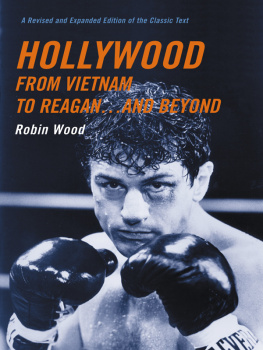
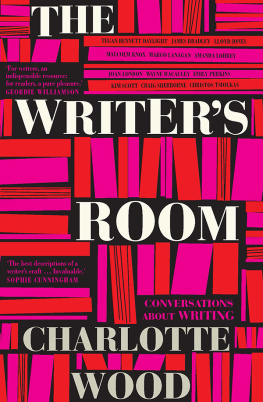


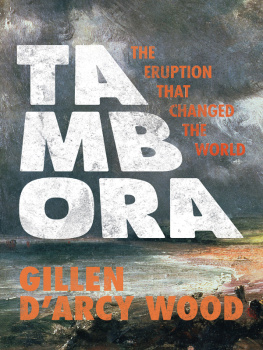
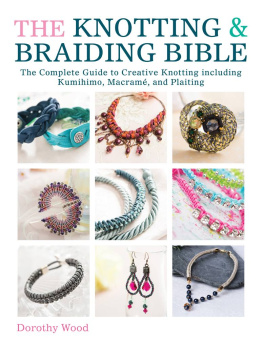
![Wood - Cia Rose Series Box Set [Books 1-3]](/uploads/posts/book/141420/thumbs/wood-cia-rose-series-box-set-books-1-3.jpg)

